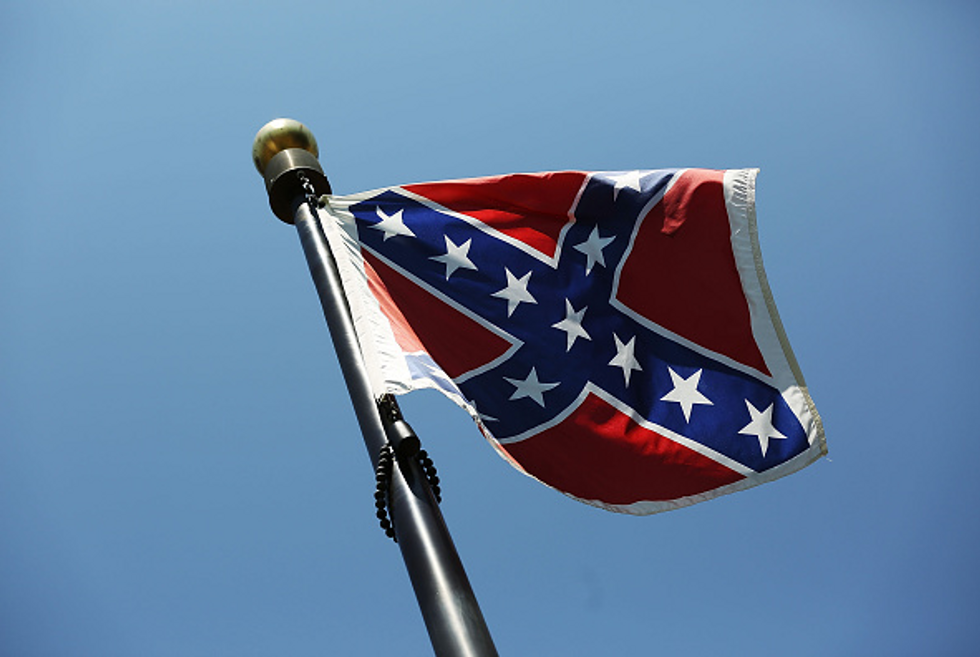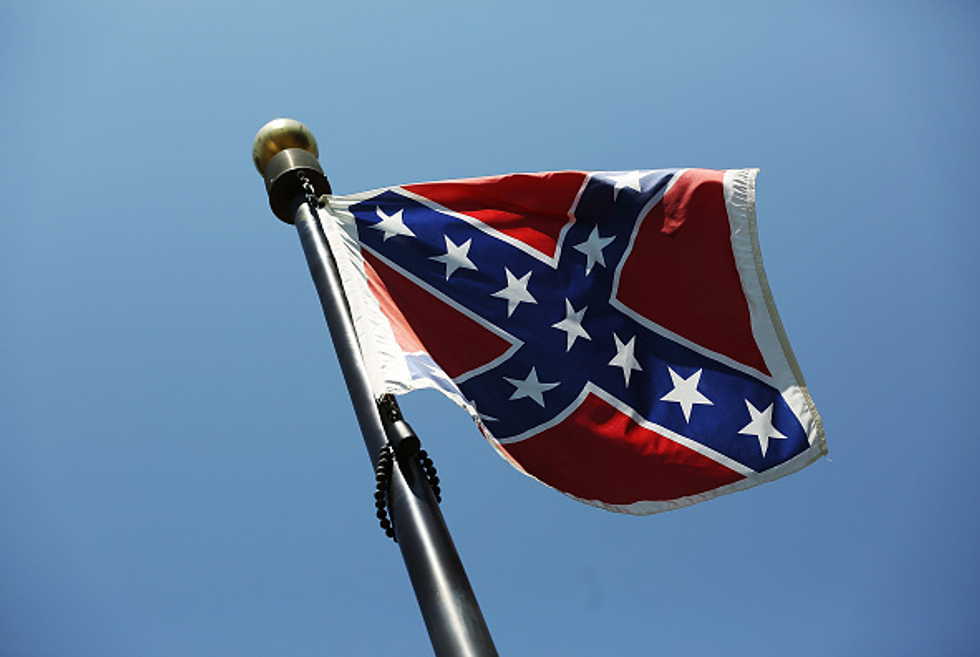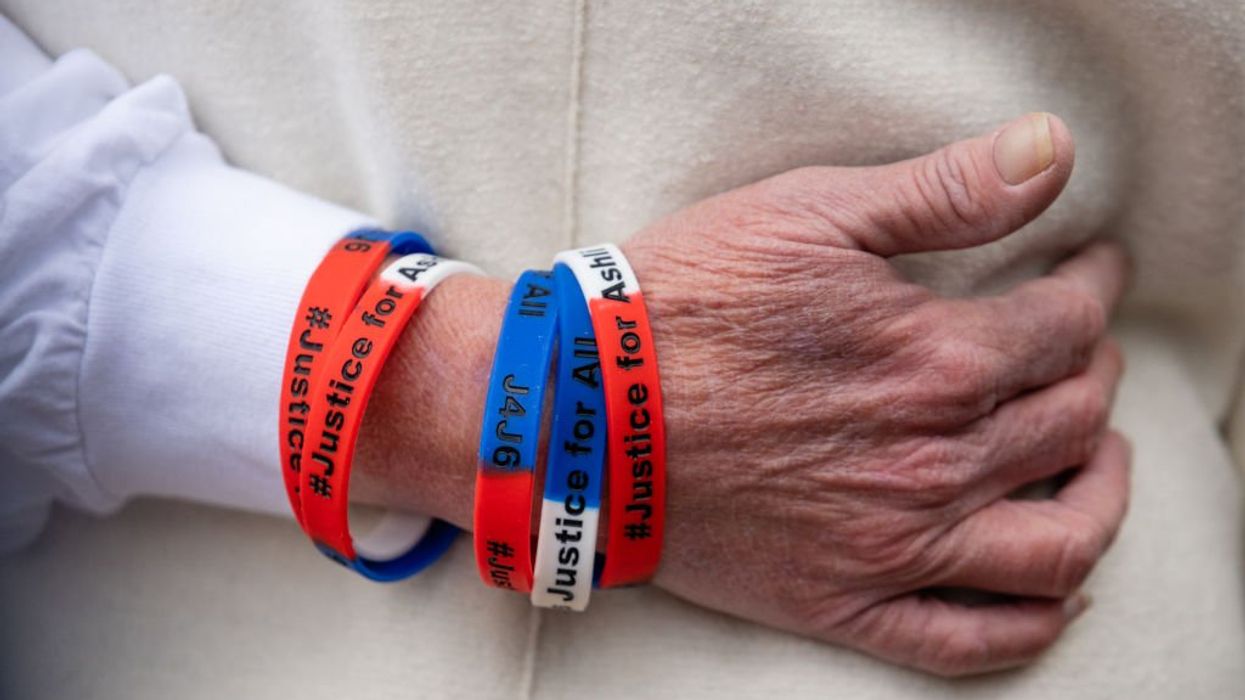A stoic and strong Jefferson Davis, the first and only president of the Confederacy, stands tall next to the trailblazing abolitionist Abraham Lincoln, our 16th U.S. president, in Kentucky’s Capitol building.
Like bookends to one chapter in the great American experiment, these two men stand together, serving as a reminder from whence we came. But Kentucky Sen. Mitch McConnell has called for Davis, the left end of that story, to be removed.
Nearly every political pundit and elected official is up in arms over the Confederate relics standing in government buildings across the nation, just like Davis in Kentucky.
[sharequote align="center"]This is part of our past and, good, bad or indifferent, it will always be part of our past.[/sharequote]
To erase the Confederate president from America’s timeline by removing him from the Kentucky Capitol will in no way erase slavery’s enduring scars. Removing Davis will only cheapen the view of the moral high ground Lincoln achieved, forever emblemized as he proudly stands ahead of the Confederate leader on the Capitol’s marble floor.
In agreement with McConnell, Kentucky Sports Radio columnist Jonathan Miller declared, “Every day, Americans of all political stripes are working to transcend the scars left by slavery and its aftermath.”
I don’t believe anyone would challenge his claim, but — it begs the question — how is pretending the scar isn’t there going to make it go away? Any sort of healing requires thoughtful discussion and the freedom to have the conversation.
This is part of our past and, good, bad or indifferent, it will always be part of our past.
 (Photo by Joe Raedle/Getty Images)
(Photo by Joe Raedle/Getty Images)
“We should remember that honorable Americans fought on both sides in the Civil War, including slave holders in the Union Army, … and that many non-slave holders fought for the South,” Jim Webb, former Virginia senator and likely 2016 Democratic presidential contender, posted on Facebook. “It was in recognition of the character of soldiers on both sides that the federal government authorized the construction of the Confederate Memorial 100 years ago.”
Displaying the history of this young and storied nation is not a crime of hate, but a freedom to walk away from the past, journeying toward a better future, carrying on the good and leaving behind the bad.
“I refuse to allow a symbol or word have power over me,” Byron Thomas, an African-American student at the University of South Carolina, said of his support for the Confederate flag.
Thomas went on to say he refuses to turn his back on his ancestry and history, telling CNN’s Hala Gorani that Dylann Roof, the alleged Charleston, South Carolina, shooter, used the Confederate symbol for hate in his recent murderous rampage at Emanuel A.M.E. Church.
Thomas highlights on a telling truth — anything can be used for hate. Need I discuss the ways the Christian Bible was heretically used to defend slavery, polygamy and the like? Or how nearly 5,000 years before Adolf Hitler, the swastika was used to represent well being and good fortune? The list goes on.
To eliminate from our society those things that give us pause and challenge the status quos to which we so often blindly adhere may be one of the most egregious sins one civilization could commit against itself.
Just as banning books because of their insensitive undertones — or overtones, for that matter — doesn’t enlighten students to better ways of thinking, forgetting our history will only serve to dumb down our society, losing the opportunity to think critically and to learn from the good and bad moments of the American story.
The Confederate flag and the stone and steel monuments of leaders who helped shape the U.S. in one way or another are not inherently evil. Those memorials honoring our great legacy bear only the meaning we give them.
These antiquities and remembrances of days gone by serve as much more than a history lesson. These relics remind us of the freedoms we enjoy — the freedom to know our story, to choose for ourselves the path we will take and to remind us of the human struggle to overcome and the celebrations that accompany success.
As former President Ronald Reagan said, “Freedom is never more than one generation away from extinction.”
May Davis and every tribute to our past forever remain as a reminder of that enduring, yet fragile, freedom.
–
TheBlaze contributor channel supports an open discourse on a range of views. The opinions expressed in this channel are solely those of each individual author.


 (Photo by Joe Raedle/Getty Images)
(Photo by Joe Raedle/Getty Images)


